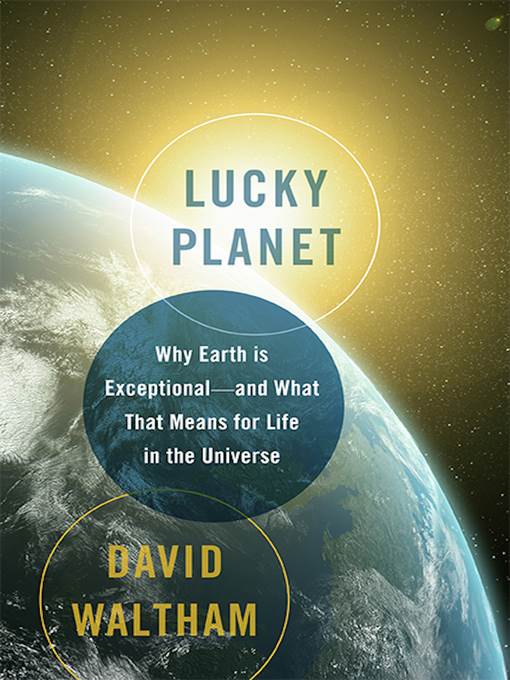
Lucky Planet
Why Earth is Exceptional?and What That Means for Life in the Universe
- اطلاعات
- نقد و بررسی
- دیدگاه کاربران
نقد و بررسی

January 27, 2014
Waltham, astrobiologist and geophysicist at the University of London, addresses the pressing question: How common is intelligent life in the universe? He examines the conditions necessary for life to begin and evolve into more complex forms, along the way exploring cosmological matters, such as star and planet formation, geological and meteorological concerns, as well as the nature of life itself. His basic, unsurprising premise is that vast amounts of time are required to produce intelligent life, but he goes further to explain that maintaining a relatively stable planetary climate for the bulk of that time is both essential and rare. “If this book has a theme, it is that climate is destiny.” Earth, as he shows, has a multiplicity of factors that have yielded a stable climate and, he argues, it is unlikely that a similar combination of conditions will appear very often. There are an enormous number of planets in the universe, but only a small percentage will have the requisite conditions. Waltham’s somewhat depressing conclusion is that “advanced civilizations elsewhere are inevitable, but they will also be so far away that we will never be able to communicate with them or even observe influences they may have on their galactic neighborhoods.”

March 15, 2014
Despite the popularity of contemporary theories that suggest our world--and even our universe--may not be singular or exceptional, astrobiologist and geophysicist Waltham (Earth Sciences/Royal Holloway Coll., Univ. of London; Mathematics: A Simple Tool for Geologists, 1994) argues that this skepticism of exclusivity is the result of "the most severe case of observational bias in the history of science." In other words, the extraordinary sequence of events that took place in order for life to evolve on Earth could not have occurred in any other sequence and still produce life forms capable of reflecting on said events. The Earth's biosphere is so beautifully and uniquely suited to foster sentient beings, it may be the only planet in the visible universe capable of hosting such complex life forms. The root idea that Earth is nothing special, the author argues, needs to be deconstructed and challenged before being taken at face value. Drawing on properties of geology, astronomy, climatology and biology, he examines how exactly Earth has managed to remain climatically stable enough to sustain life. The fact that 4 billion years have passed without a catastrophic, life-ending change in atmospheric temperature is, he argues, more than just a byproduct of the planet's atmosphere; it's a statistical wonder that is unlikely to be repeated, even within the vastness of the visible universe. To support his theory that incredible luck plays a defining role in our existence, Waltham surveys historical factors in the makeup of stars and planets, as well as looking deeper into the Earth's astonishing good fortune as a habitat for multicellular life--and whether it can be sustained. A bold, unwavering argument that pushes back against the too-quick acceptance of Earth as exceptional--and encourages its intelligent life forms to appreciate our supreme luck.
COPYRIGHT(2014) Kirkus Reviews, ALL RIGHTS RESERVED.

March 15, 2014
Waltham (earth sciences, Royal Holloway Coll., Univ. of London) favors a variant of the "anthropic principle": there are an infinite variety of planets in the universe, and--purely by chance--ours is one of the few whose climate was just right for fostering the development of life. Furthermore, Earth has maintained a relatively stable climate long enough to permit the development of intelligent beings, a feat unlikely to be duplicated elsewhere in the universe, at least in a way we will ever know about or be able to comprehend. Unfortunately, the globe's own good luck will run out, and most of its life forms will disappear as a brightening sun overheats our home planet. VERDICT Despite the author's droll humor, his digressions and lengthy discussions of counterfactual astronomy make for dense reading. Readers may find Paul Davies's Cosmic Jackpot: Why Our Universe Is Just Right for Life more comprehensible, as Waltham's book is best suited to those already familiar with other popular science literature on exoplanets, the anthropic principle, and/or extraterrestrial life.--Nancy Curtis, Univ. of Maine Lib., Orono
Copyright 2014 Library Journal, LLC Used with permission.




دیدگاه کاربران